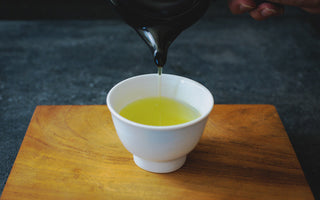The typical treatments for OCD involve a combination of Cognitive Behavioral Therapy and appropriate medication.
But in addition to medical treatments, other resources can also supplement your ongoing treatment and make it a little easier.
One of these options that the OCD community swears by is the consumption of green tea. But is green tea really going to help ease OCD symptoms?
The short answer is no, but the long answer is a little more promising. But before we get to that, you must first understand what OCD actually is and how it manifests.
OCD Definition and Symptoms
OCD is a chronic anxiety disorder involving obsessive and intrusive thinking patterns and compulsive behaviors. These obsessions and compulsions can take different forms, giving rise to different types of OCD: checking, contamination, symmetry and order, relationship, false memory, and many more. Moreover, it is common for these forms to overlap.
While extremely debilitating by itself, OCD commonly co-occurs with other mental health disorders, including anxiety, addiction, and eating disorders.

There are three elements of OCD manifesting as different symptoms:
- Obsessions in OCD are intrusive and distressing thoughts that repeatedly and relentlessly pop up in your mind. For example, if you have contamination OCD, the worry of contracting a disease will constantly plague your mind, so much so that you might refuse to leave your house or have anyone else over.
- Emotional states of anxiety, self-doubt, depression, and fear are comorbid with OCD.
- Compulsions in OCD are repetitive and often destructive behaviors driven by a person’s obsessions and emotional state. These compulsive behaviors provide temporary relief but will ultimately wear you down and wreck your relationships, job, and day-to-day life.
If you’re still unsure whether or not you have OCD, you can start by taking a reliable OCD test. However, given the various forms and comorbidities of OCD, a proper medical diagnosis is crucial.
How Diet Affects OCD
We all know that diet plays an integral role in your physical wellbeing. However, many people overlook just how important diet is for their mental wellbeing as well. For decades, the idea that what you eat somehow affects your mental health was dismissed as pseudoscience.
But luckily, recent research corroborating the undeniable link between diet and mental health silences the naysayers. After all, your brain is an organ that, like other organs in your body, reacts differently to different foods.
When it comes to OCD, the nutrients you put in your body have the potential to worsen or improve your condition. They don’t directly cause or cure your OCD but instead affect the extent to which your brain can handle the symptoms of OCD.
Although limited, various studies identify certain nutritional deficiencies that could worsen OCD:
- Vitamin D
- Vitamin B12
- Omega-3s
- Probiotics
- Beta-carotene
Recently, another indispensable nutrient with the potential to supplement OCD treatment has been identified: L-theanine, a major constituent in green tea.

The Effects of Green Tea on Brain Chemistry
Green tea is an age-old health-promoting elixir and an integral dietary supplement in countless cultures across the world. It has a range of scientifically proven health benefits, from aiding digestion to preventing cardiovascular diseases.
Most importantly, green tea has been shown to improve brain function.
This property of green tea intrigued scientists, who wondered whether this refreshing and nutritious drink could help alleviate OCD symptoms. The results of this research showed the potential of green tea to help with the following neurochemical factors most commonly associated with OCD:
1. Cognitive functions
Cognitive function refers to an array of mental abilities, including memory, attention, thinking, language, reasoning and decision-making, problem-solving, and so on. If you suffer from OCD, you’ve probably experienced great difficulty in these realms, especially decision-making, thinking, memory, and attention.
One of the most destructive things for your cognitive function is extracellular glutamate, a naturally produced and potent neurotoxin that can cause irreparable damage to your brain cells (neurons).
However, L-theanine acts as a neuroprotector and prevents brain injury from glutamate buildup. Various other studies have identified the role of L-theanine in offsetting or even preventing cognitive dysfunctions, such as Alzheimer’s disease and dementia.
2. Memory
Almost all forms of OCD involve a lapse in memory, which can lead to repetitive behaviors. Problems with memory are most pronounced in people with OCD, which could make you check things like whether you locked your front door or switched off your hair straightener multiple times.
In this regard, L-theanine has shown great potential for improving one’s memory by preventing neural degeneration.
However, it is important to note that underlying anxiety is the leading cause of OCD behaviors. In other words, it’s not that OCD patients have a bad memory, but rather that their anxiety convinces them they do.

3. Anxiety and Depression
OCD is typically categorized as an anxiety disorder. The constant flood of distressing thoughts will inevitably create a lot of anxiety. This is why mental health providers often prescribe anxiety medication for people with severe OCD.
At the same time, OCD is most commonly comorbid with depression. Hence, depression medications are also commonly prescribed for OCD patients under treatment.
This fatal combination of OCD, anxiety, and depression can and does severely impair people suffering from OCD. But frequent consumption of green tea might offer a little release.
While the research on this is still preliminary, long-term administration of L-theanine reduces heart rate, psychological stress, sleep disorders, serotonin deficiency, and other symptoms of anxiety and depression.
The Final Verdict — Does Green Tea Help With OCD?
The research surrounding the alleviating effects of green tea for OCD patients is severely limited yet promising.
Various studies have begun to focus on the potential of L-theanine, a principal constituent of green tea, to alleviate the symptoms of OCD. However, there simply isn’t enough scientific evidence to conclusively say whether green tea can actually help.
Moreover, the existing studies show that only long-term and high-dose administration of L-theanine can ease OCD symptoms. But there’s no harm in trying.
If you do decide to go the green tea route, you’ll have to give it a few months before you can start seeing effects. Moreover, try to go for green tea with high concentrations of theanine, such as Matcha tea.
But the most important thing to remember is not to forgo therapy and medication. Green tea alone cannot help you overcome OCD and reclaim your life, but a combination of therapy, medication, and a high-theanine diet certainly can.
Get Free Bonus Books

Sign up for free to the Green Tea Club to get advice and exclusive articles about how to choose Japanese Tea, and tips, tricks, and recipes for enjoying Japanese tea.
About the author
Kei Nishida
Author, CEO Dream of Japan
Certification: PMP, BS in Computer Science
Education: Western Washington University
Kei Nishida is a passionate Japanese green tea connoisseur, writer, and the founder and CEO of Japanese Green Tea Co., a Dream of Japan Company.
Driven by a deep desire to share the rich flavors of his homeland, he established the only company that sources premium tea grown in nutrient-rich sugarcane soil—earning multiple Global Tea Champion awards.
Expanding his mission of introducing Japan’s finest to the world, Kei pioneered the launch of the first-ever Sumiyaki charcoal-roasted coffee through Japanese Coffee Co. He also brought the artistry of traditional Japanese craftsmanship to the global market by making katana-style handmade knives—crafted by a renowned katana maker—available outside Japan for the first time through Japanese Knife Co.
Kei’s journey continues as he uncovers and shares Japan’s hidden treasures with the world.
Learn more about Kei







